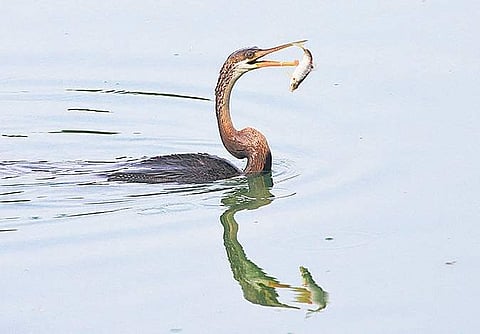

BENGALURU: After rescuing a city lake from dying a slow death from pollution, residents living around it have now taken up the responsibility of ensuring the lake is clean. The caretakers of Puttenahalli lake in JP Nagar 7th phase, one of the city's few success stories in lake preservation, have now tied up with a private lab to carry out monthly testing of the lake's waters.
Members of the Puttenahalli Neighbourhood Lake Improvement Trust (PNLIT) will take the help of SMS Labs Services Private Ltd (SMSLA) to test the lake's waters every month, so that PNLIT can take action to improve the condition of the lake. PNLIT is a registered charitable trust and its members are responsible for rejuvenating the lake. They were handed over the responsibility of its maintenance by the Bruhat Bengaluru Mahanagara Palike (BBMP) in 2011. PNLIT meets the expenses of their activities through public donations.
Speaking on the move, PNLIT trustee Usha Rajagopalan, says, “We are taking up many measures to improve the quality of water, so we need to know for ourselves whether it is working.” PNLIT had introduced floating islands to clean water, and is now considering installation of fountains to aerate the water to reduce algal bloom.
Residents will pay a subsidised amount to SMSLA for the testing. The lab will test for 11-12 parameters and prepare a report, after which residents will hand over the report to the Environmental Management Policy & Research Institute (EMPRI), an autonomous institute established by Government of Karnataka, to advice them on the course of action. Two such reports have already been submitted, which have detected considerably high content of nitrates and phosphates. Usha says algal bloom upon entry of sewage into the lake during rainfall is one of the major problems encountered.
Another concern the residents have is whether their plans will harm fish, and so they want to opt for a chemical-free solution. PNLIT members are hoping that a good number of migratory birds visit the lake this winter. “Last year, BBMP completely cleared a swampy area in the lake, which was a habitat for birds, and so not many migratory birds were seen,” Usha says. Many amateur birdwatchers visit the
lake, which is estimated to have a bird population of 25 resident species.